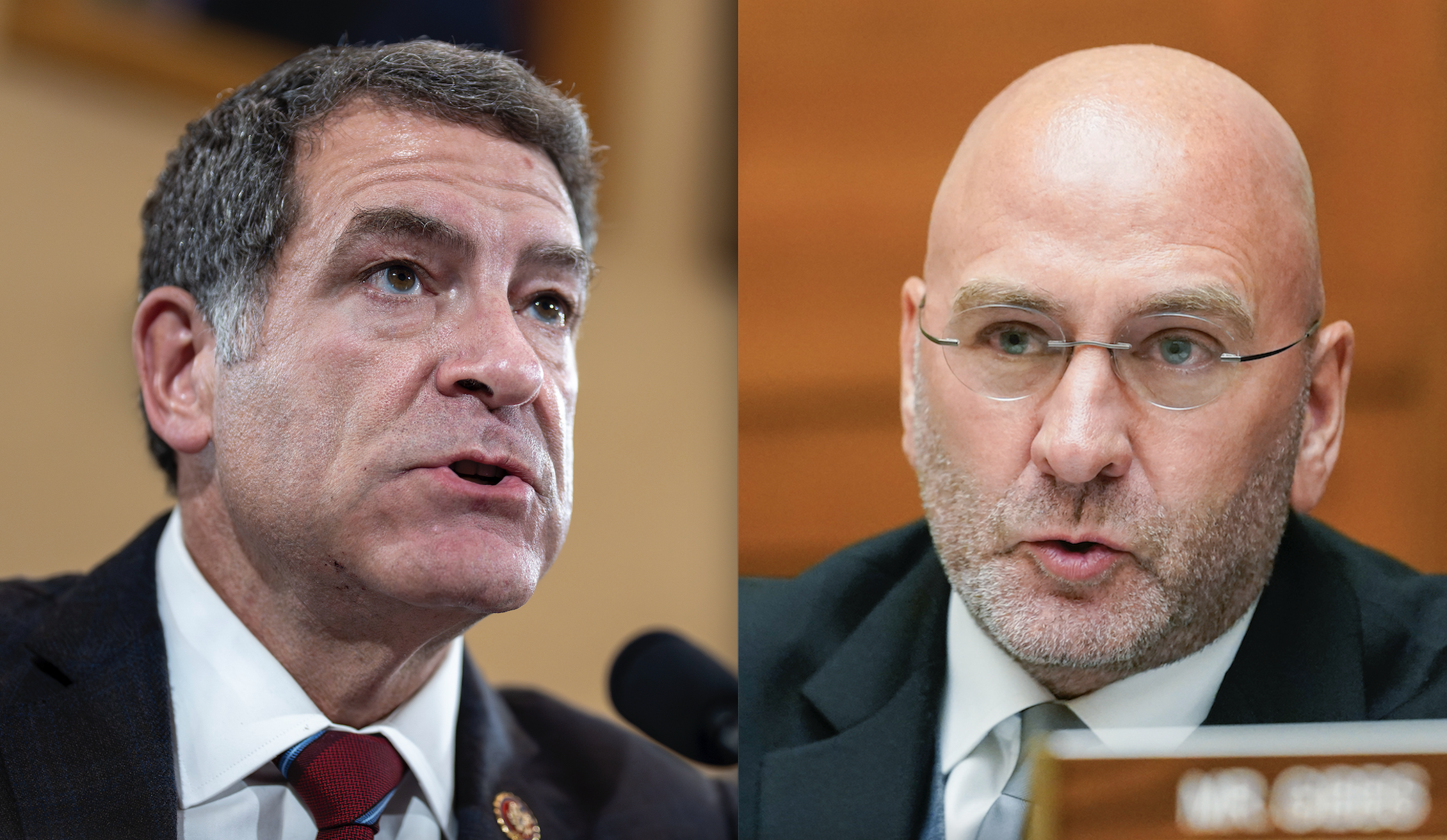
Vice President Kamala Harris is more than three years into her role as the Biden administration’s “border czar,” but Republicans have not been impressed by her performance, instead accusing Harris of imposing immigration policies that caused the border crisis.
Harris touted on Monday a total of $5.2 billion in financial commitments to Mexico’s southern neighbors during her meeting in Washington with Guatemalan President Bernardo Arevalo Monday afternoon. The nongovernmental investments into El Salvador, Guatemala, and Honduras are part of a longer-term U.S. effort to boost the economy, provide jobs, and reason for citizens in the region not to feel they must migrate elsewhere.
But Republicans were flippant over the investments, with House Homeland Security Chairman Mark Green (R-TN) saying in a statement to the Washington Examiner that if Harris wants to get to the “root causes of this unprecedented border crisis,” she should “look in the mirror.”
“Doing so would be both far less costly and much more enlightening,” Green added.
Asked if the $5 billion in total committed funds from 50 companies would bring meaningful change to the region, which millions have fled for the United States over the past decade, Rep. Clay Higgins (R-LA) was a definitive “no.”
“Meaningful. Yes, this would bring about meaningful delivery of laundered American money to cartels. Very Bidenish,” Higgins, the chairman of the House Homeland Security Subcommittee on Border Security and Enforcement, said in a statement.
Green, whose committee first moved articles of impeachment against Biden’s Homeland Security Secretary Alejandro Mayorkas earlier this year, said the Biden administration was wasting time trying to change conditions in the region.
“While Harris and others in the administration try to cast blame for this unmitigated disaster on anything and everyone else, it’s important to note that even Mayorkas’s DHS stated last year (in the Quadrennial Homeland Security Review) that violence, corruption, and systemic poverty were ‘long-standing factors’ in our hemisphere — so they can’t be uniquely responsible for this crisis,” Green said.
The solution, Green said, was to return to policies from previous White House administrations.
“This ‘root-causes’ nonsense is just meant to make unserious people sound like they’re trying to do something meaningful to end this crisis,” Green continued.
Biden first called in February 2021 for the creation and implementation of a strategy to address the root causes of people leaving their home countries as illegal immigrant arrests at the U.S.-Mexico border began to soar weeks after he took office.
Department of Homeland Security data from 2007 showed that Mexicans made up 90% of all arrests that year. By 2019, immigrants from El Salvador, Guatemala, and Honduras made up more than 70% of all arrests.
By 2021, immigrants from countries outside of Mexico and the Northern Triangle made up 1.1 million of the total 3.4 million apprehensions, or 32%, according to federal data.
In an effort to address the growing demographics of immigrants, the White House announced $310 million in aid to Central America and the appointment of Harris as the leader of diplomatic talks with regional leaders. It also released its “Strategies to Address the Root Causes of Migration in Central America.” The document laid out, in general terms, plans for improving business conditions, addressing corruption within governments, bolstering human rights, countering gangs and cartels, and combating domestic violence.
Since then, U.S. corporations have invested $5.2 billion into regional projects to improve the economy so that they do not need to leave, according to Harris. Investments include giving 6 million people access to small business financing by 2027, providing education and employment training to 75,000 people by 2027, facilitating $500 million in infrastructure deals by 2027, and creating and securing jobs for 1 million people by 2032.
Corporations plunged $2 billion into the project in 2022. Clothing company Gap said it would increase its sourcing of materials from Central America to $50 million per year with an intention to surpass $150 million by 2025, according to the White House. It is estimated that 5,000 additional jobs would be created in the region.
Financial service company Visa vowed to pour in $270 million over the next five years toward bringing people and small- and medium-sized businesses into the global financial system.
CLICK HERE TO READ MORE FROM THE WASHINGTON EXAMINER
Last February, Harris touted that the White House initiative was having a “positive impact” in reducing the flow of immigrants from the region amid short-lived declines in arrests. However, illegal crossings at the border have remained at all-time highs.
A major challenge for the Biden administration is that its focus on Central America ignores a new phenomenon that has unfolded over the past year. Immigrants from more than 150 countries are arriving at the southern border annually, and more people are coming from all over the world, illustrating the limits of a regional strategy focused on addressing the factors that lead people to leave home.






